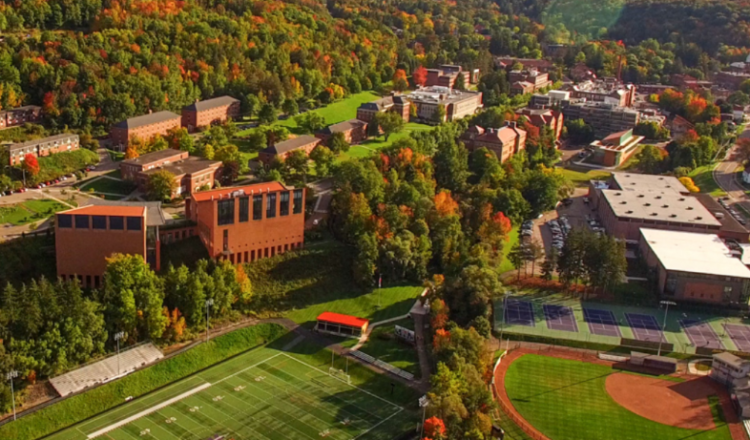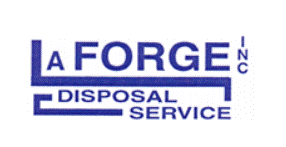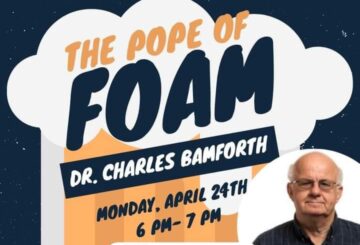Zupan: We are thrilled to be here
From Alfred University,
The University held its opening breakfast for faculty and staff on Tuesday, Aug. 22, at Ade Hall. Mark Zupan, Alfred University president, talked about the University’s investment in the future, which is evident in improvements to dining services, residential facilities, and educational spaces, as well as curricular innovation, co-curricular programming, and research opportunities for students
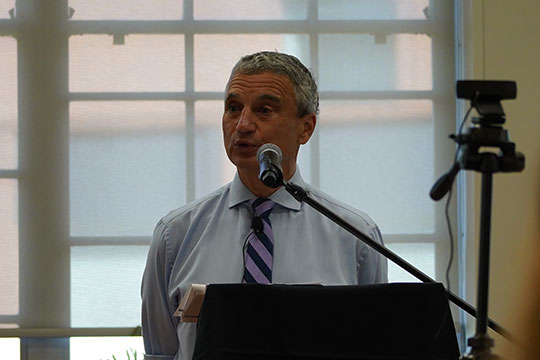
“Happy 188th to our University,” Zupan said. “We are thrilled to be here. This is a wonderful opportunity for us to look back and look forward.”
The University has made major improvements to its student housing facilities over the last few years, with both Connors Hall (formerly Openyhm) and The Brick residence hall undergoing significant renovations. Curricular innovations include the recent addition of several new bachelor’s degree programs, including data analytics and business analytics; Bachelor of Science offerings in chemistry, biology, and biochemistry; and the reintroduction of the computer science and electrical engineering majors. The University recently received state approval to offer Bachelor of Science degrees in physics and astrophysics.
Plans are underway to construct Saxon Hill, a new athletics and recreational facility atop Jericho Hill south of the Alfred University campus. The facility, which will cost about $28 million to build (much coming from philanthropic investment), will increase intercollegiate athletics offerings by creating a home to new women’s rugby and baseball teams and providing new practice and competition spaces for existing teams. Once complete in fall 2025, the facility is expected to increase enrollment by approximately 170 students over a five-year period. Improvements have been made to Foster Lake, providing recreational opportunities to the entire University community.
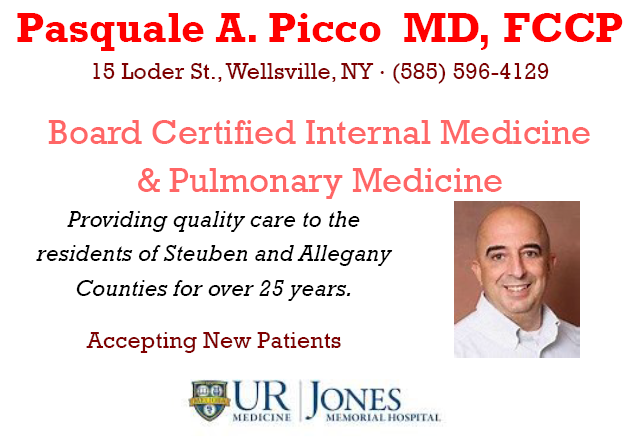
The New York State College of Ceramics, the statutory unit housing the Inamori School of Engineering and School of Art and Design, received a $645,000 increase to its budget, and has plans to apply for a $345,000 grant which will help increase stipends to graduate assistant. New research opportunities are evident in a partnership with the U.S. Army Research Laboratory, in which Alfred University received a $13.5 million five-year contract from the Army to research the forming and characterization of ultra-high temperature ceramic (UHTC) materials. Approximately 30 undergraduate students—majoring in glass science engineering, ceramic engineering, biomaterials engineering, and materials science and engineering—participated in the Summer Research Institute and performed research on projects supervised by 11 faculty.
The results of these efforts are reflected in increased new student enrollment. When classes open on Monday, Aug. 28, there will be 543 new students—453 first-year students and 90 transfers—an increase of more than 20 percent over the University’s goal of 450.
In addition to higher-than-expected enrollment, the University has seen its tuition discount rate drop by two percentage points and its student retention rate increase by six percentage points. Occupancy of on-campus student housing is up more than 70 students.
2023 Alfred University Opening Breakfast Video
Despite the accomplishments of the last year, Zupan said the University will be diligent in planning for the future. “One year does not make a track record for success,” he said. “We can not take this last year for granted.”
Strategic planning, and embracing what makes Alfred University distinctive—inclusivity, intersections, and a spirit of mentorship—are what will continue to make the University successful.
“We want to be known for our principles. The most important of which is to build on is inclusivity,” Zupan said, noting that Alfred University was the first institution of higher education to not only admit women, but also allow them access to the same curricular offerings as men. “That has to come first.”
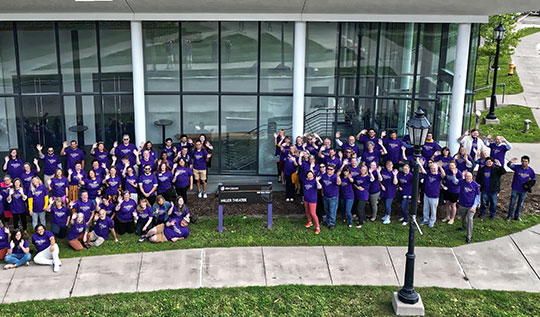
The University has made it a priority to highlight intersections, which provide students with opportunities to learn and engage outside their normal courses of study. The University provides opportunities for intersection by offering multiple majors, minors and degree offering; unique double-majors (such as engineering and art); STEAM (science, technology, engineering, art, and math) programming offered in facilities like the planned new foundry, which will provide curricular and co-curricular opportunities in both art and engineering.
Zupan discussed mentorship as a “pivotal role” in students’ success, particular in early part of their college careers. He expressed the importance of embracing a culture of mentorship across the entire University community, from fellow students and faculty and staff to alumni.
When hiring new employees, we want to articulate this value to them,” Zupan remarked. “It is important to emphasize peer-based mentoring from (older) students who have been in their shoes. Alumni want to pay (their success) forward. That will be key.”


